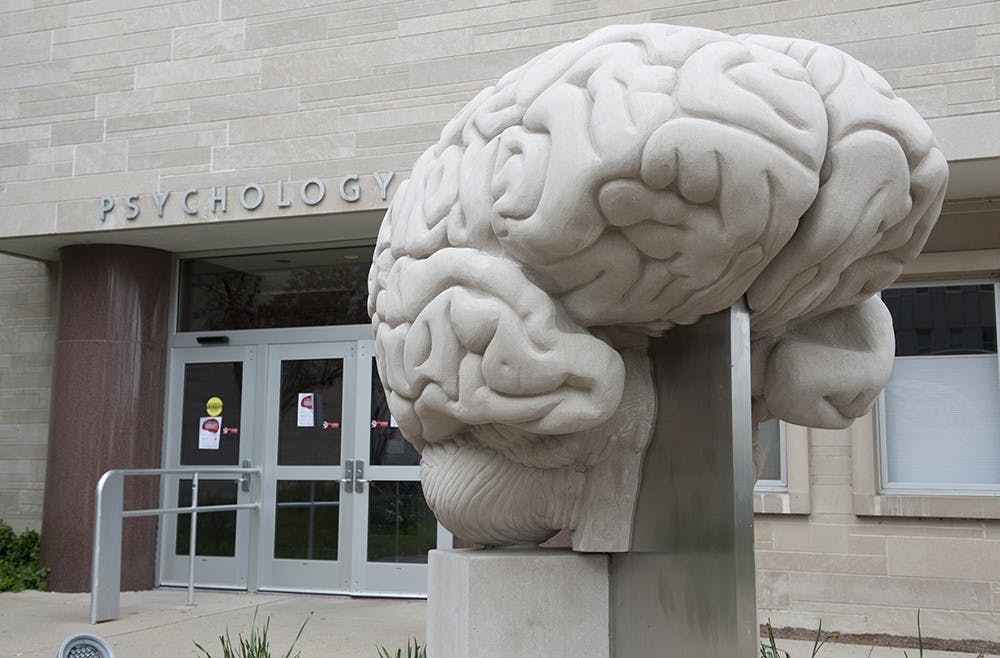“I am not okay.”
These four words are not easily uttered in society. Whether it be due to pride or fear of being ostracized, talking about mental health and the struggles we face simply does not happen enough. This is something that needs to change — conversations about mental health must be destigmatized.
As students head back to school or begin their new journeys in an environment foreign to them, it is important for students to know they are not alone if they are struggling to get by day to day.
In the age of social media, people are expected to paint a facade that shows we are all doing awesome and everything is great. According to collegestats.org, 50% of college students are living with what they claim is below average or poor mental health, and 30% of college students find it hard to keep up with their school work because of mental health issues.
According to these same statistics, 40% of students fail to seek help for their struggles. This could be attributed to the fact that people in the United States spend twice as much on health care, on average, than any other country on earth.
Students failing to seek help for their mental health struggle with a multitude of outcomes, such as self harm, drug usage and physical health issues. According to the American College Health Association, the suicide rate among students aged 15 to 24 is now three times what it was in the 1950s.
What can help with beginning the dialogue is for people to avoid negatively stigmatizing mental illness. According to a UCLA-led study conducted at more than 150 colleges, students who experience suicidal thoughts are more likely to not seek help if they are in a campus environment with negative stigmatization toward mental health.
Students will not seek help if they feel they'll be shunned or chastised by their peers. It's a matter of wanting to fit in and feel accepted, so creating awareness and showing students that they are not alone in their mental health struggles is much needed. At the end of the day, it is okay for a student to talk about mental health, because it is likely there is someone around them who has been wanting to talk about their own struggles but didn't feel they could.
The National Alliance of Mental Illness recommends talking about these issues with family and friends, and they even have a list of suggestions on how to go about that process.
It's important to know you don't have to share everything with loved ones, if you choose to talk to them. You can set boundaries, let them know how they can support you as you go about your day to day life. Mental health struggles don't go away like a cold. They're to be handled over the course of a lifetime, and there are highs and lows.
When it comes to taking care of our students, parents and mentors play an integral part in the solution as well. Unfortunately, only a mere 7% of parents reported that their children suffer from mental health issues while in college. Many parents are completely unaware of their children's mental health struggles.
Fortunately, colleges are spearheading campus initiatives to help students living with mental illness. Here at Indiana University, the college offers mental health services through CAPS, which will allow for students to have low-cost access to mental health care.
As we can see, we are definitely not alone with our struggles. Even if we do not seek help for our struggles in the form of professional treatment, just being able to have a dialogue about our problems can also be helpful. Reaching out to a friend can do a world of good to help with getting through a tough time or handling an ongoing issue, such as depression or anxiety. We need to create a change for young adults. This is literally a life or death matter, and we can't afford to do nothing.
If you or someone you know is experiencing depression or suicidal thoughts, there are resources to help. IU Counseling and Psychological Services is on the fourth floor of the IU Health Center and offers help with stress management, anxiety, depression and more. To set up an appointment, go here. In an emergency, call 812-855-5711, which is available 24/7. The National Suicide Prevention Lifeline is 1-800-273-8255.






